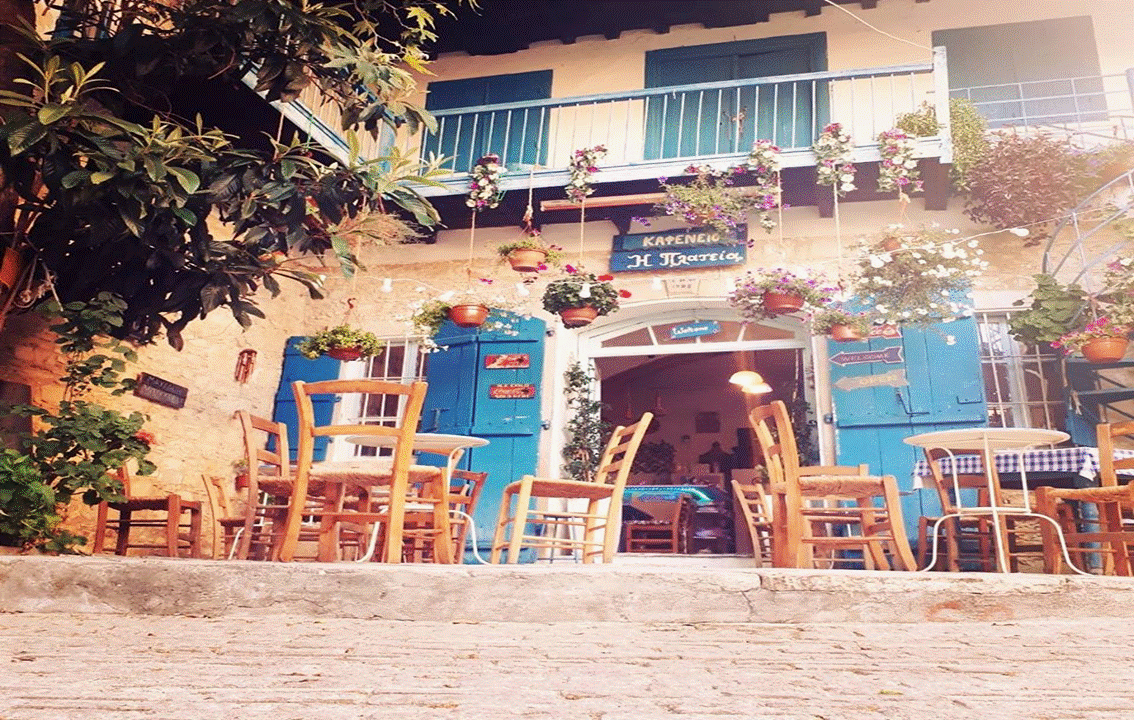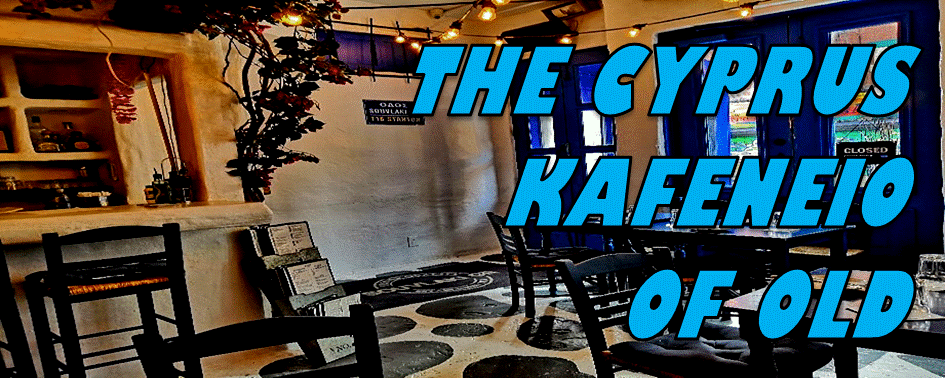
THE TRADITIONAL COFFEE SHOP’S
VALUED PLACE IN CYPRIOT SOCIETY
A MAIN FOCAL POINT FOR CYPRIOTS
In earlier times, the traditional Cyprus coffee shop or ‘Kafeneío’ as it came to be known, was the focal point of most of Cypriot life. Extremely popular, traditional coffee shops, during these times, would allow patrons a brief respite from their daily poverty-stricken lives. Considered a haven, several local men would spend several hours a day or most evenings in these establishments.
A SANTUARY FOR MEN
The traditional coffee shop of old generally supplied a sanctuary for most men. They would generally use it as a place to share the latest gossip or to lighten the mood with funny stories. Other patrons, however, would often use these establishments to discuss important matters of the day. Some would use them as a forum to share their political views and analysis. Several merchants would conduct some of their business transactions there. They were also used as a neutral environment to resolve local disputes.
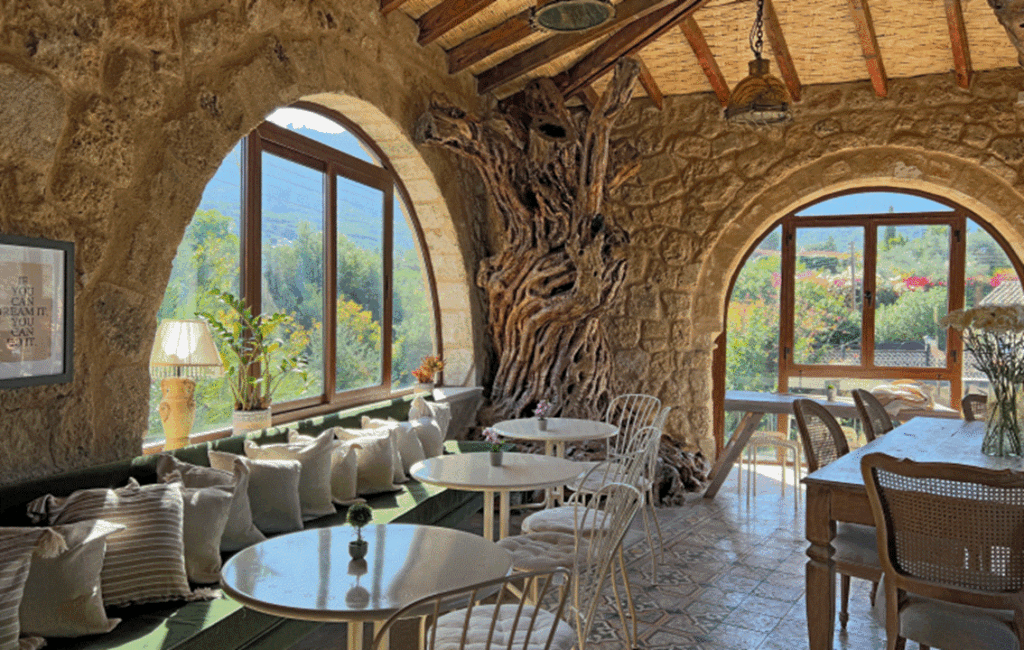
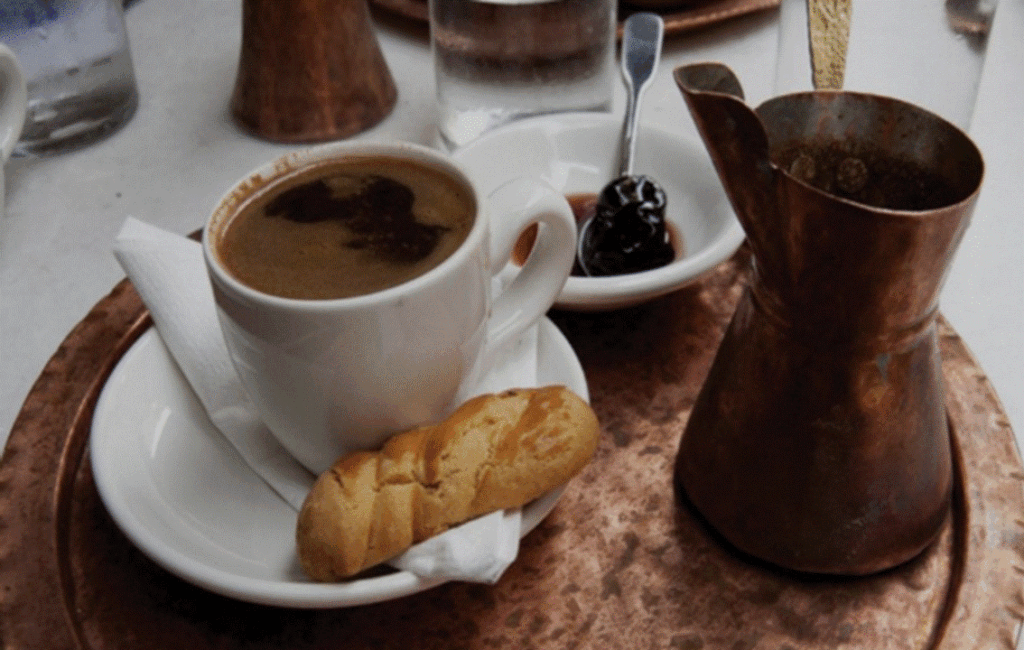
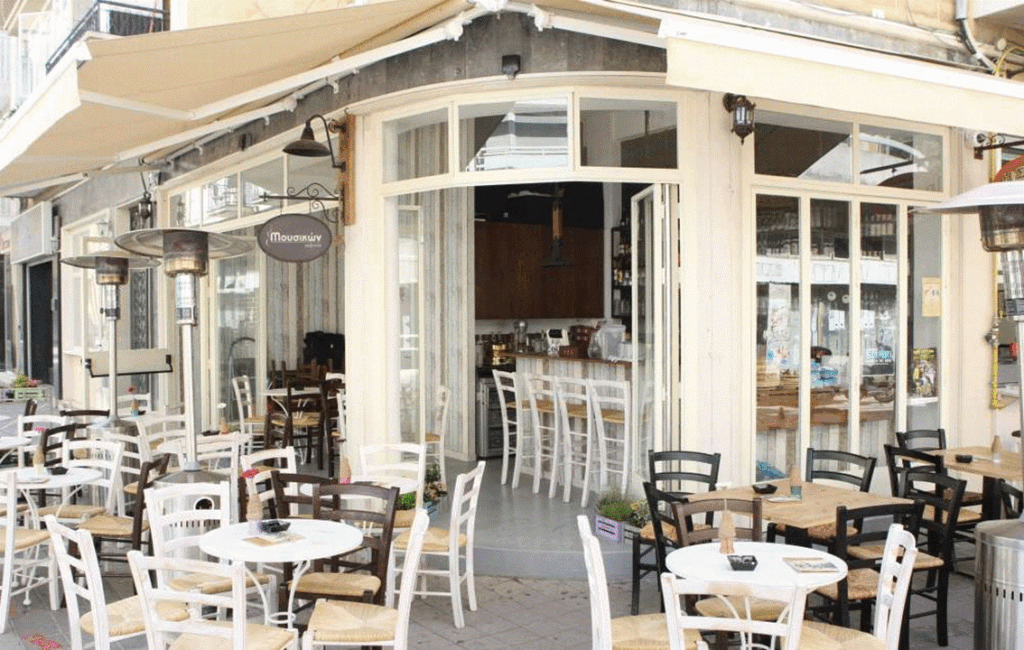
SIMPLE BUT EFFECTIVE
Each traditional coffee shop usually consisted of a single large roomed building. These were often filled with a few hand-made wooden tables and reed or rush-woven chairs. There would also usually be a large glass-fronted cupboard, which would be used to store crockery. Before the advent of electric refrigeration, flat-lid iced units often containing large solid blocks of ice would be used to chill drinks and some foods. Nearly all of these establishments also had a raised fireplace. this usually housed a receptacle for charcoal, which was usually kept smouldering. This would constantly heat the hot sand, which was then used to make CYPRUS COFFEE.
A SELECTION OF OFFERINGS
In addition to food, snacks and hot and cold beverages, alcohol and various tobacco products were also available for purchase. Some coffee shops had a large blackboard or slate that kept a tab open for patrons to record the amount owed to the coffee shop owner. Patrons would usually sit around a central open fireplace during the winter months. Summer, however, often employed the use of an outside veranda or a built-up pavement, with a tree or vine canopy. This usually provided a welcome shade for patrons during the hot summer months.
A POPULAR PLACE
Traditionally, nearly all coffee shops in rural Cyprus were located in and around the main village square. They, along with other notable businesses, often created a hub of activity. Coffee shops became so popular in some villages that men would sometimes have to queue to enter. It was not unusual for them to wait for an empty chair to become available. This prompted more coffee shops to open, and in some villages, they far outnumbered all other establishments. As a result, some tried to supply their patrons with a common theme of interests. They would do this by aligning themselves with either a local sporting club, football team, or even a political party.
A SURVEY OF RURAL LIFE IN CYPRUS
‘A survey of rural life in Cyprus,’ which was published by the British Government in 1930, stated that the average amount spent by most Cypriots at their local coffee shop was around 10% of their annual income. The survey also stated that the district of Kyrenia had the largest number of coffeehouses in Cyprus. These figured were set against the proportion of the island’s greater population at he time.
A PLACE OF BUSINESS
Several businessmen would also conduct some of their daily business at the traditional coffee shop. Moneylenders, masons, farmers, shepherds and various merchants were known to use them as a platform to discuss the business of the day. Prices and new business agreements were often brokered, and merchants and farmers would often visit throughout the day, selling their produce from their carts. Local bakers, along with confectioners, also sold fresh pastries and other sweet delicacies from their local coffee shop. They did this mostly on Sundays and during holidays. Traditional coffee shops also played an important role in legal matters and politics. They were often used as a forum for people to vote on important matters or to sign important documents in front of witnesses.
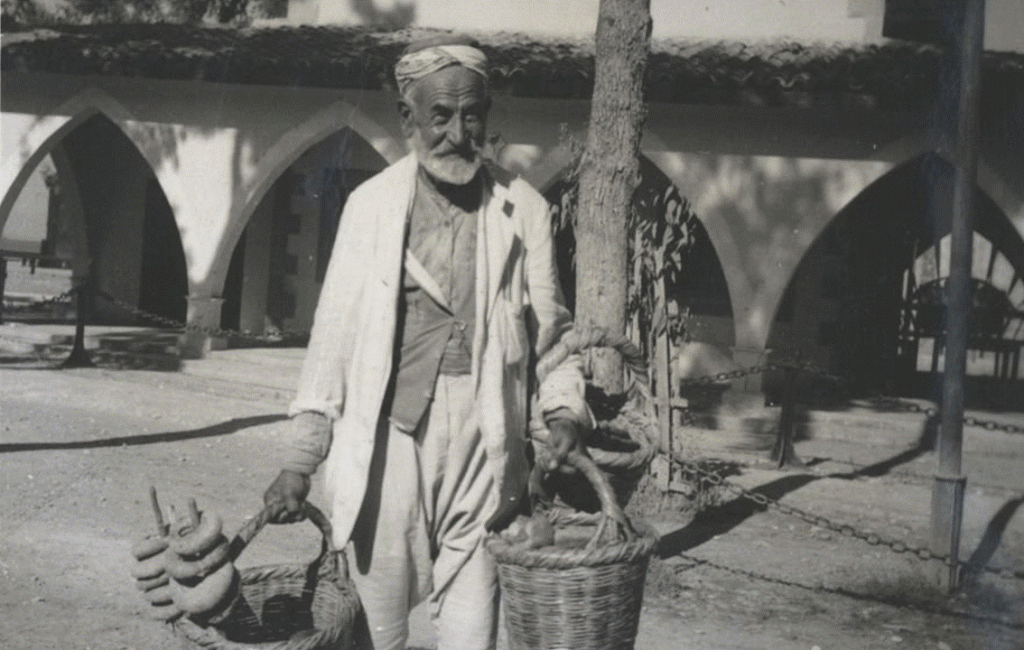
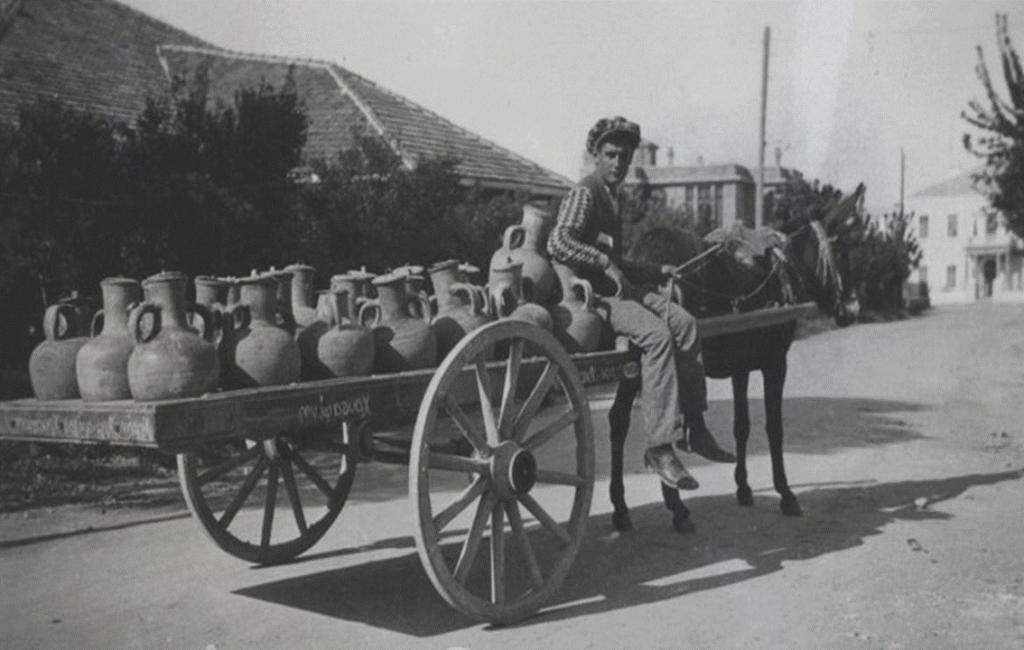
IMPORTANT MEETING PLACES
Coffee shops in earlier days also served as hubs for important people to meet. Important meetings would often involve notable people from the local village. It would not be uncommon for the local priest to visit some of his congregation at his local coffee shop or for a teacher to frequent the place with some of his students. Local policemen would also use the coffee shop to regularly meet with rural constables, who were known as ‘AGROPHYLAKES’. The village headman, known as the ‘MUKHTARI’, and his assistants, known as ‘AZADES’ were also known to frequently meet at their local coffee shop. This sometimes proved a little unpopular, however, as the ‘AZADES’ also acted as local tax collectors.
A FREE COFFE FOR NEWS
It was common practice at the traditional coffee shop for people to take turns paying for each other’s coffee. A patron entering the coffee shop would receive a coffee paid for by the previous patron to enter, and this would continue throughout the day. When an unknown stranger entered, the coffee shop owner would often treat him to a free coffee in exchange for news from faraway villages or towns. As time wore on, coffee shops also began to hold regular newspaper readings that told of news and events from other parts of the island.
A REGULAR HAUNT
Some Cypriot men regularly visited their local coffee shop two or three times a day. They would spend their time smoking, drinking and playing some unique Cypriot card games. Cypriot versions of BACKGAMMON and chess were also played. The loud sounds from patrons engrossed in these games would often be heard from the street. Travellers, passing through a village, would often first stop at the local coffee shop not only for refreshments but also for local information or directions.
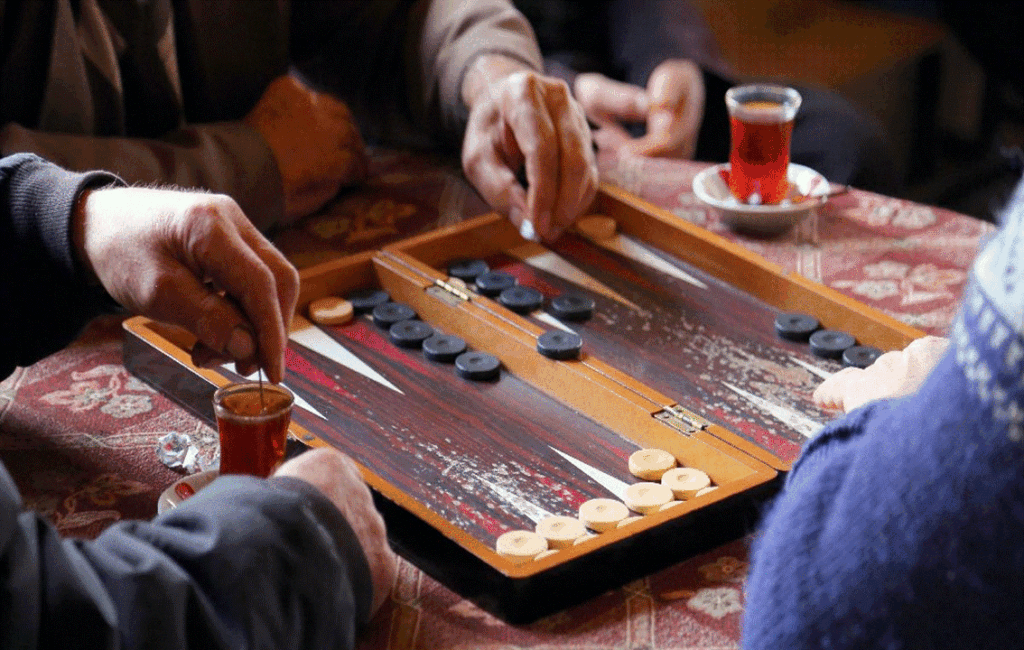

SPECIAL EVENTS & SHOWS
The ‘Karagiozis’ was a travelling shadow hand puppet theatre that traditional coffee shop owners hosted regularly as a special event. These much-anticipated, high-demand events were exclusively held at select coffee shops throughout the island, forming the main form of light entertainment of the time. Weekly events, such as bingo or quizzes, were also regularly held. Coffee shops were also the first establishments to introduce weekly movie nights with the advent of television and projectors.
WEEKEND ENTERTAINMENT
The traditional Cyprus coffee shop was strictly a male-oriented environment, and both children and women were forbidden from entering them. In some villages, women were not even allowed to walk past them. The only women to be found in coffee shops were the wives and daughters of the owners. Coffee shop owners would sometimes allow them to help cook the food or serve some of the patrons. This would usually occur at weekends when some coffee shop owners would hold barbecues. In this way, the traditional coffee shop would be transformed into a bar or tavern. This was usually accompanied by live music throughout the day and in the evenings.
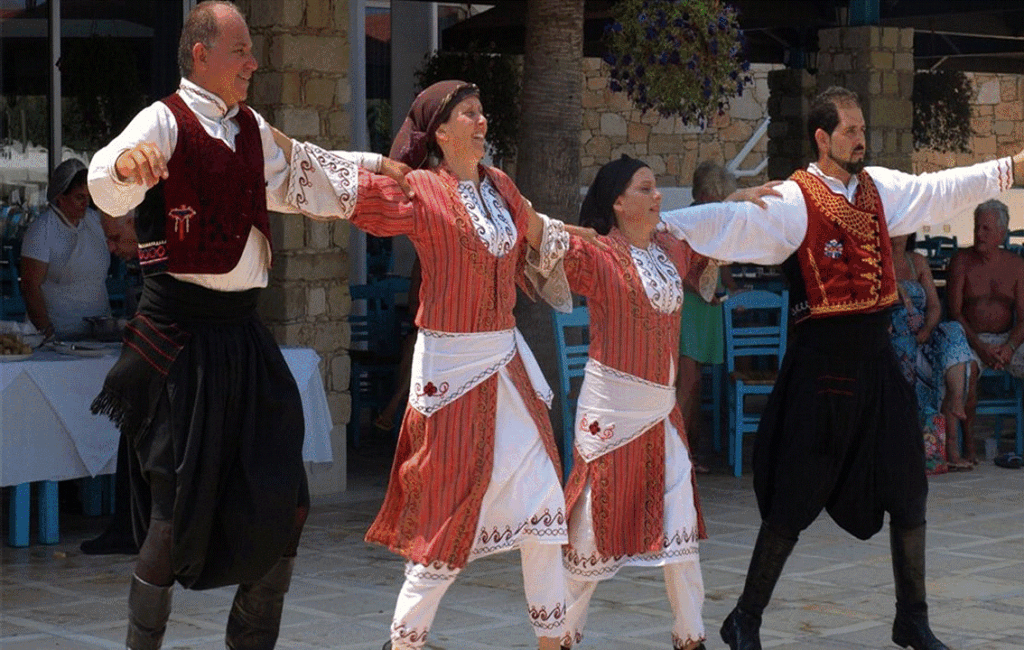
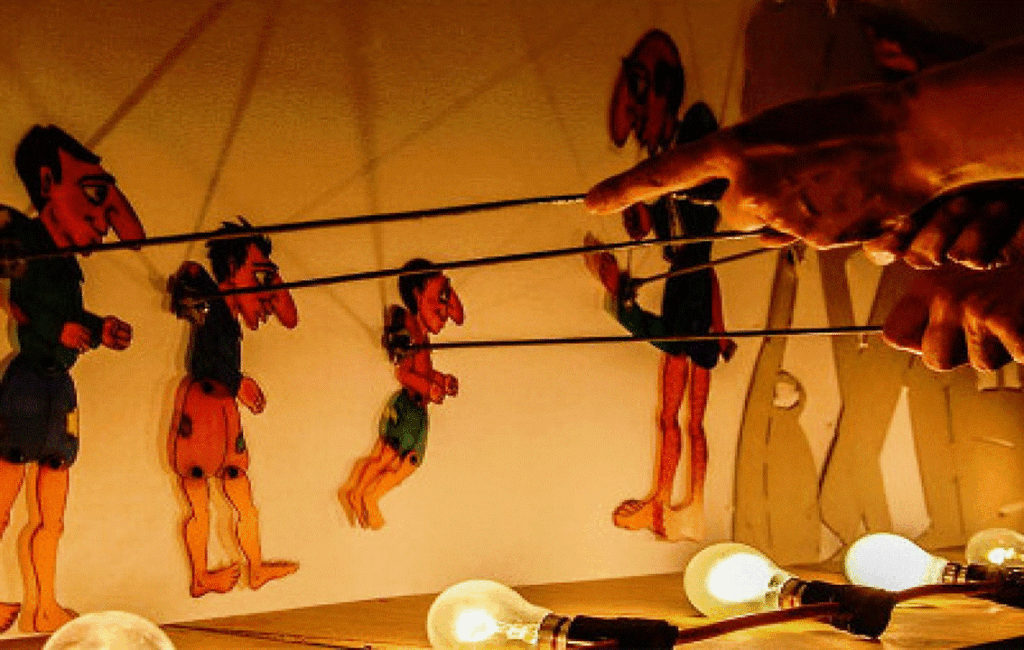
TECHNOLOGY INNOVATORS
Coffee shops were also often the first establishments to embrace new technology. They were instrumental in introducing several innovations to their respective villages. They were the first public establishment to use alcohol based spirit lamps. At the turn of the 20th century, when most of the inhabitants in rural Cyprus were illiterate, traditional coffee shops would hold evening newspaper readings. A designated village reader would read aloud the stories and daily news from the day’s newspaper for all to hear.
BROADCASTS FROM ALL OVER THE WORLD
Several coffee shop owners were also the first to install wireless radios. This would eventually render newspaper readings redundant. Men would instead gather to listen to news broadcasts from all over the world. Coffee shop owners were also the first to introduce gramophones, billiards and table football. Later, they would also be the first to add television sets, pinball machines and electronic arcade video games to their establishments.
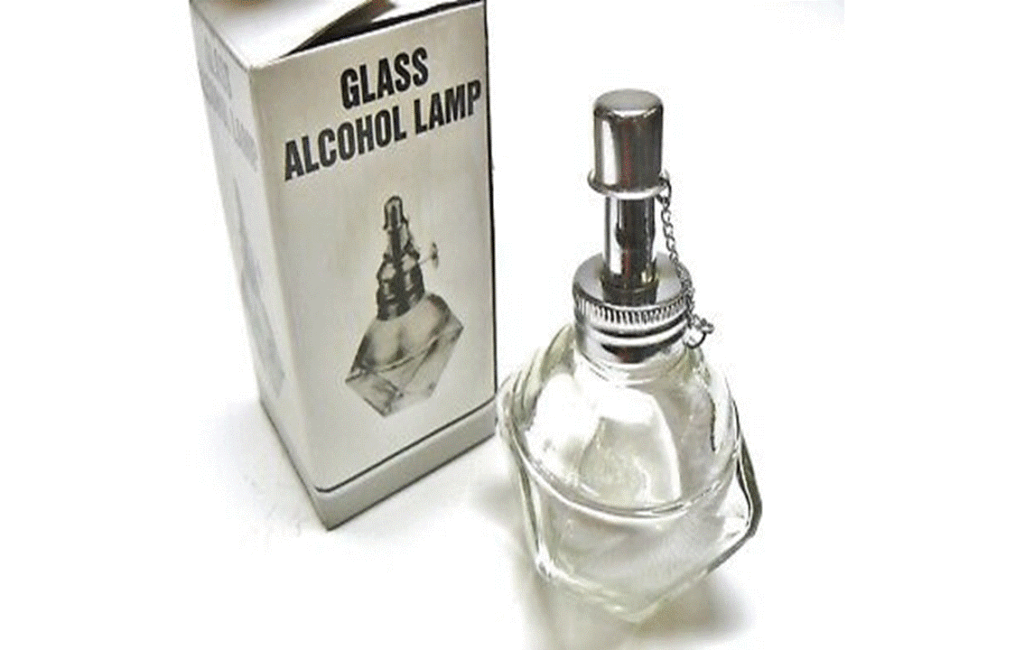
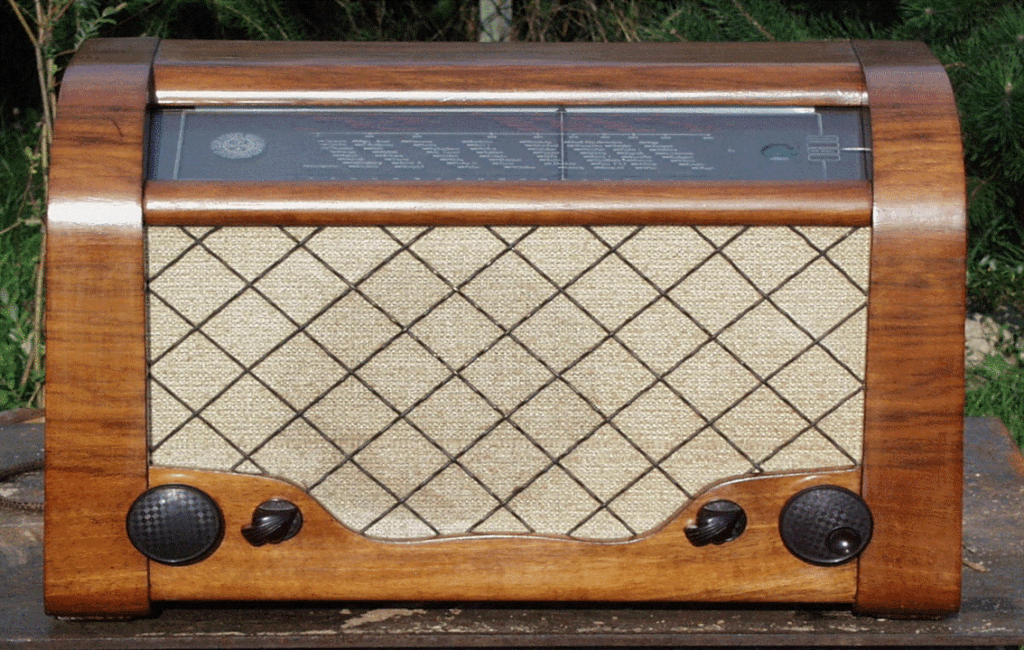
A NEW ROLE IN MODERN SOCIETY
Traditional Cypriot coffee shops still play a multifaceted role in today’s modern society. While these establishments continue to adapt to the complexities of modern life, they have remained steadfast in their attempt to hold on to their traditions. Every Cyprus village, town and city has them, and although they still exist, newer modern cafes have evolved to cater to a younger clientele. With this in mind, it is true to say that whilst the role of the traditional coffee shop in modern society is not as potent as it once was, these establishments still serve as vital social hubs, especially in villages across Cyprus.
THE COFFEE SHOP'S ROLE TODAY
It is fair to say that the traditional coffee shop today fosters community connections. It does this while preserving certain elements of the traditional Cypriot cultural identity. These establishments still focus on the local community, and they preserve a certain culture. They also serve as a connection in a modern world that often feels fragmented, and they still stand as a testament to the power of togetherness. This is shown by the shared experiences that make up a huge part of Cypriot heritage.
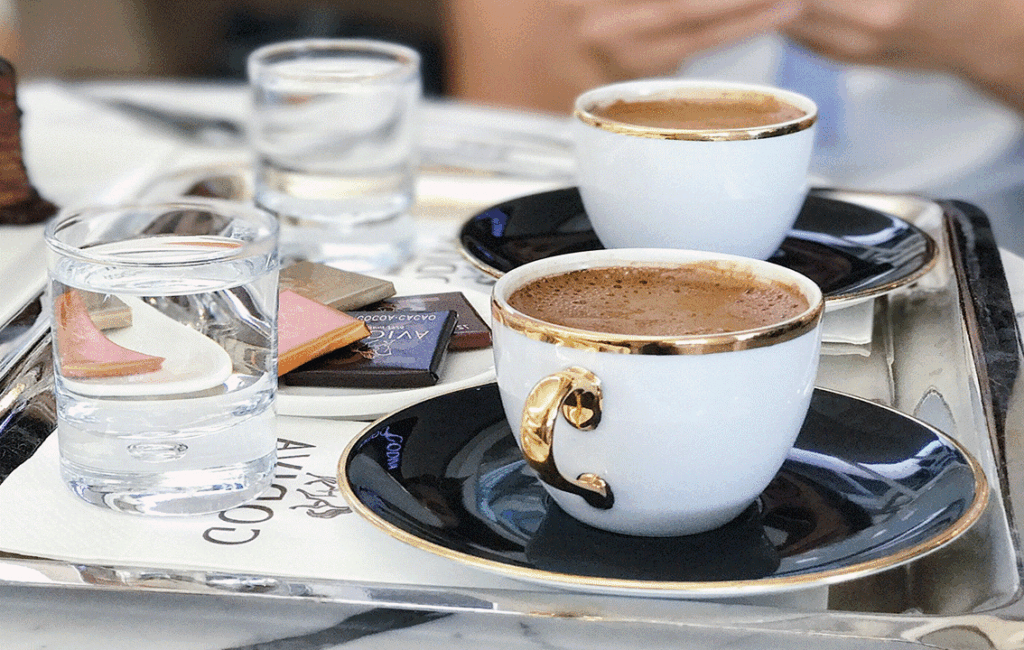
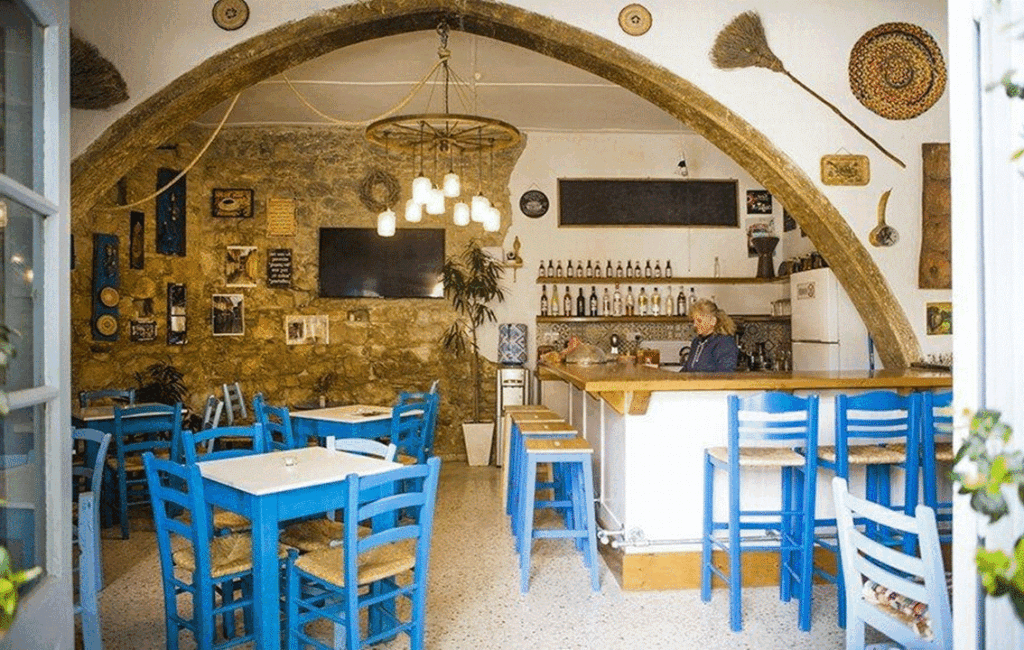
THE CHALLENGING ROLE OF THE TRADITIONAL COFFEE SHOP TODAY
A TRADITION OF COFFEE DRINKING
Drinking coffee emerged as a tradition on the island during the Ottoman period. This is when drinking coffee became a central part of social life. Spaces emerged where men would gather to drink coffee, engage in conversation, and partake in table games, such as BACKGAMMON. They would also discuss politics and any local news. The atmosphere surrounding these establishments was also one of camaraderie. As the years progressed, coffee shops became synonymous with Cypriot culture, reflecting the island’s rich history and diverse influences.
A CULTURAL LANDMARK
The traditional coffee shops, or ‘kafeneia’, serve as more than just places to enjoy a cup of coffee. These establishments are cultural landmarks, social hubs, and repositories of history that continue to play a significant role in modern Cypriot society. Despite the rapid globalisation and modernisation that have swept the island today, traditional coffee shops remain vital to the social fabric of Cyprus. They offer a unique blend of nostalgia, community, and cultural identity.
ESSENTIAL SOCIAL HUBS
In today’s fast-paced modern world, traditional Cypriot coffee shops continue to serve as essential social hubs. They still provide a welcome space for people to come together, fostering a sense of community and belonging. Unlike the sterile environment of modern cafes, traditional coffee shops offer a much more personal service, along with a warm and inviting atmosphere. The simple act of sharing a cup of coffee often strengthens social bonds, allowing individuals to connect with friends, family, and even friendly strangers.
A VENUE FOR LOCAL EVENTS
Traditional coffee shops are integral to the social landscape of Cyprus. This is especially apparent in rural areas. In addition to serving coffee, these establishments also often feature local art, music, and literature. They often provide a platform for Cypriot artists and musicians to share their art form. This not only supports local talent but also reinforces a sense of pride in a rich Cypriot heritage. They also serve as venues for local events and festive gatherings, celebrating milestones. They often provide an essential forum for discussion, often hosting important meetings on local issues, further cementing their role in the community. Several traditional coffee shops also hold regular communal bingo nights and special culinary evenings.
CYPRIOT CULTURE & IDENTITY
Traditional coffee shops contribute to the preservation of cultural practices that might otherwise be lost in the face of increased globalisation. In a world increasingly dominated by digital interactions, it is true to say that these spaces emphasise the importance of face-to-face communication and the value of shared experiences. These establishments are also crucial in preserving and promoting Cypriot culture and identity. The unique preparation and serving of coffee, often accompanied by a selection of traditional sweets, reflect the island’s relaxed approach to all things. The ritual of drinking coffee in a traditional coffee shop also embodies the values of the famous Cypriot hospitality and generosity that are central to Cypriot culture.
LOCAL ECONOMIC IMPORTANCE
While traditional coffee shops are primarily social and cultural spaces, they also play a significant economic role in the local economy. Many of these establishments are family-owned, providing livelihoods for countless individuals. They often source their ingredients locally, supporting farmers and suppliers within the community. This local economic activity helps to sustain the traditional way of life and keeps money circulating within the community. Growing tourism on the island and visitors seeking a real Cypriot experience have also boosted the traditional coffee shops’ profile, with some becoming attractions for visitors seeking authentic experiences. Visitors, as a result, are often drawn to the charm of these establishments. these visitors often immerse themselves in the local culture and enjoy a taste of traditional Cypriot hospitality. This influx of visitors has also provided a substantial boost to the local economy, further highlighting the importance of preserving these cultural landmarks.
THE RISE OF GLOBAL COFFEE CHAINS
Despite their enduring significance, traditional coffee shops face numerous challenges in today’s modern society. The rise of global coffee chains and fast-paced lifestyles has led to a decline in the number of traditional coffee shops. Many younger patrons are drawn to the convenience and familiarity of modern cafes. However, many traditional coffee shops are adapting to these changes, embracing modernity whilst adapting to modern marketing concepts. As a result, most now show televised sporting events and offer free WiFi. They also include certain elements of social media marketing to attract a younger clientele. Others have diversified their offerings, introducing new modern menus, while still maintaining traditional favourites. Today, most maintain that the balance between preserving tradition and embracing modernity is crucial for the continued relevance of the traditional coffee shop in contemporary society.
